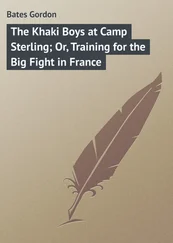Ernst’s fears were justified. By that afternoon, his colleagues had reported the missing money, and the police in turn had notified customs officials, who sent out telegrams to all border crossing stations reading: “Family of five named Angress to be arrested.”
As he boarded the midnight train, Werner didn’t know any of this. He followed his father’s detailed instructions: he tipped the conductor and said his father would not be joining him as originally planned. The conductor asked for his passport, and Werner handed it over. In the sleeping compartment, Werner undressed and lay down on the lower bunk. Exhausted, he fell asleep before the train had even left the station.
A few hours later, the train stopped in the dark at Bentheim-Grenze, the last station in Germany before the Dutch border. Werner was still asleep when the light came on in the compartment; he awakened to three men standing next to his bunk. One was the conductor he had tipped. The other two wore trench coats and derbies—one of them held Werner’s passport, which he was studying intently.
Your last name is Angress? he asked in German.
A groggy Werner said yes.
Where is your father?
Without hesitating, Werner coolly lied as his father had instructed him and said he was in Berlin.
After further questioning, the Gestapo left the compartment and went into the corridor for a short conversation. They had been advised to be on the lookout for a family of five, not a teenage boy traveling alone. They handed Werner’s passport back to the conductor and left.
The train soon started rolling again. Werner dressed quickly and was given back his passport by the conductor, who said his shift was about to end.
In a few minutes, the train stopped at Oldenzaal, the first station in Holland. Only when the new conductor, speaking German with a Dutch accent, greeted Werner did it register on him that he was out of Germany and traveling in a free country. His mother and brothers were also safe; his one remaining concern was his father. Werner hoped that whatever plan his father had come up with yesterday would also bring him safely to Holland, and that they would find his mother and brothers waiting for them there and be reunited.
In Amsterdam, Werner went directly from the station to the Pension Rosengarten on Beethovenstraat, using directions his father had made him memorize. When he found the address, he saw that it was an old, dark apartment building, filled with newly arrived German Jews who were also waiting to make connections to someplace else. The owner, who was the head of the currency-smuggling ring, had just received a telegram from Ernst, asking if “Werner and Minna” had made it to Amsterdam. “Minna” was code for the briefcase filled with money. The owner was now able to wire Ernst that both Werner and Minna had indeed arrived safely.
It took Ernst another week to reach Amsterdam. To avoid arrest, he followed an agonizingly circuitous route. From Berlin, he had taken the train to Prague. When he arrived at the Czech border, he exited on the wrong side of the train and walked across the tracks, avoiding the German border guards. Entering Czechoslovakia, he identified himself as a Jewish refugee from Germany. He assured the Czech border guards that he was en route to Holland via Austria, Switzerland, and France—a path German refugees called the “Jewish Southern Loop”—and thus avoided being sent back.
In Amsterdam, the family was finally reunited. Yet, for weeks after they had moved into a rented apartment, Ernst struggled to put the ordeal behind him. He had done things in an effort to get his family out of Germany that he had never thought he was capable of doing. He had not only broken the law for the first time in his life, but in doing so, he had subjected his wife and sons to dangers as well. Adding to these deep blows to his self-esteem, Ernst had to reckon with all that the family had left behind in the city and country of their birth. There was their home and all their belongings, which Ernst heard had been seized by the Gestapo, and the respectable reputation he had built in his profession. There were also their extended families and ancestral burial sites, all left behind. No matter how safe they were outside Germany, there were so many things they could not replace or replicate elsewhere.
Werner was nearly inconsolable, too. He’d left all his friends in such a hurry that he hadn’t even been able to say good-byes. After the financial crimes his father had committed, he would never be able to return to Gross Breesen or Germany. Like it or not, he was in exile, too. He talked about this with his father, who understood how he felt. He had always been a German patriot, Ernst told his son. When he was in the army in the last war, he had volunteered to go to the front to take part in the fighting, and had been disappointed when he was assigned to military base duty because of a hearing disorder. But now—
“Hitler and the Nazis aren’t letting us be Germans anymore,” Ernst said bitterly. “They have humiliated and degraded Jews to second-class citizens. For that reason, Werner, Germany is no longer our homeland. I’ll take up a gun against those crooks anytime!”
His own heart made heavier by his father’s sorrow and deep sense of betrayal, Werner had no idea how soon the day would come when he, rather than his father, would be taking up arms in just that fight.
Stephan Lewy’s train ride out of Germany landed him and the other Jewish orphans from Berlin on the outskirts of Quincy-sous-Sénart, a French village of fifteen hundred residents about twenty miles south of Paris. The boys were awestruck as they approached their new home, a majestic old château owned by Count Hubert Conquéré de Monbrison. The count and his wife, Princess Irina Paley, a cousin of the last Russian czar, had for years opened the château to refugee girls from the Russian and Spanish civil wars, and they had recently been asked by a board member of a Paris-based Jewish children’s aid society, Oeuvre de Secours aux Enfants (OSE), to take in German Jewish refugee children, whom the group had been rescuing after Kristallnacht.
When the forty boys arrived from Berlin in July 1939, there were no rooms available in the château; most were already occupied by Spanish girls. For the first several months, while the girls waited to be taken in by local families, the boys had to stay in an annex building, along with instructors and other staff, most of whom were also Jewish refugees.
The boys were enrolled in the village school across the road. Since Stephan and the others didn’t speak French, they were placed in the first grade. Stephan, who was already fourteen years old, picked up the language quickly. And given how good he was at mathematics and geography, he was soon advanced to his grade level.
One of the things he learned in his French history class was that France, a country of forty million, had lost two million men in the last war with Germany. It was a crushing loss, one that still lingered in recent memory. And yet, in spite of the rise of Hitler and the Nazis, and the rearming of Germany, there existed among the French a cheerful optimism and a strong sense of safety and security. The newly constructed Maginot Line, which consisted of miles of concrete walls, obstacles, and fortifications on the French side of the border with Germany, was believed to be impenetrable. Built to replicate the static defensive combat of the first war, French military experts thought it would protect their country from future German invasions.
From their own experiences with the Nazis, and after the military buildup they had seen in Germany, Stephan and the other Berlin boys did not share the locals’ sense of well-being. Stephan’s father, Arthur, had predicted that Hitler would wage war in the fall, “after the crops are in the barn,” so as to feed his army. This was the same timing Germany had employed in the last war, his father had explained to Stephan before he left Germany. Now Stephan worried about what would happen to his parents, still in Germany, and to himself in France in the event of war.
Читать дальше












